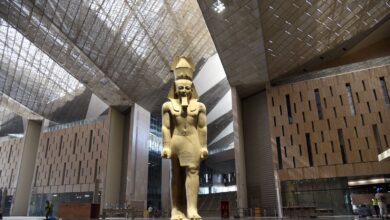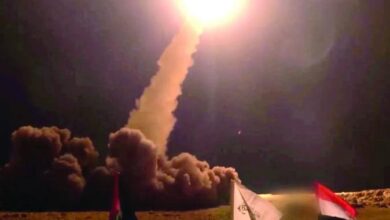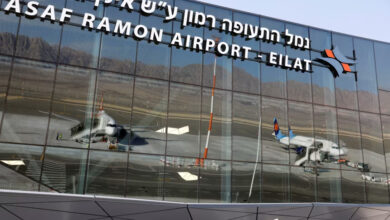Sanaa–Yemeni troops killed four demonstrators and wounded seven others on Friday when they fired on an anti-regime rally in the north, officials and Shiite rebels said, as protests raged across the country.
The shooting, which came a day after the opposition and clerics offered embattled President Ali Abdullah Saleh a smooth exit from power, took place in the village of Semla, 170 kilometres (105 miles) from the capital Sanaa.
"Two protesters were killed and nine others were wounded when soldiers opened fire from a military position on the demonstration calling for Saleh's departure," a leader of the Zaidi rebels said on condition of anonymity.
The death toll later rose to four when two protesters died of their wounds, according to a government official in the northern province of Amran, who declined to be named.
The shooting was also reported on the rebels' news website almenpar.net, which said the government troops "killed and wounded dozens" when they shot at them from a military post.
Protesters had taken to the streets of the nearby town of Harf Sufyan to criticise corruption and call for a regime change after 30 years of rule by Saleh, said the website.
The Zaidi rebels, also known as Huthis, on 22 February joined anti-Saleh protests which erupted across the poverty striken country in January and gained momentum last month.
Yemen's mountainous northern region is stronghold of the Shiite movement, which from 2004 fought six wars with Saleh's government forces before signing a truce in February 2010.
In the capital Sanaa, massive crowds gathered for weekly Muslim prayers in a square where anti-Saleh protesters have been camped since 20 February.
"We will not leave this place until the fall of the corrupt and tyrants," said Yahya al-Dulaimi, the cleric who led the prayers.
Organisers said more than 100,000 people were demonstrating in Sanaa on Friday.
Anti-regime protest organiser Hashem al-Ibara told AFP on Thursday the demonstrators would intensify their rallies from Saturday and would start marching towards the presidential palace.
Meanwhile, counter demonstrations organised by Saleh's General People's Congress (GPC) party were staged in nearby Tahrir Square, calling for dialogue.
"No to chaos, No to sabotage, Yes to dialogue," their banners read. According to CPG leaders, hundreds of thousands were demonstrating in Saleh's favour across Yemen.
In the main southern city of Aden, tens of thousands of mourners attended a funeral in Al-Mansura neighbourhood for two protesters killed by security forces during last month's violence, said an AFP correspondent.
They carried banners that read, "Leave Ali, for the sake of our martyrs", while chanting, "The people want to overthrow the regime."
Thousands also took part in a similar funeral in the neighbourhood of Mualla, marching towards a cemetery in the district of Crater, witnesses said.
There were no police to be seen in both areas, but security forces were deployed heavily at a central square where protesters tried to gather last week in Khor Maksar neighbourhood, witnesses said.
Saleh's government has been rocked by a wave of protests in which at least 19 people have been killed since February 16, according to an AFP toll based on reports and witnesses.
Rights group Amnesty International has put the toll at 27.
The protests have been inspired by uprisings in Egypt and Tunisia that forced the resignations of their respective longtime leaders, Hosni Mubarak and Zine El Abidine Ben Ali.
Last week, the Yemeni president vowed to defend his three-decade regime "with every drop of blood," accusing his opponents of hijacking protests in a ploy to split the nation.
He also accused his opponents of trying to revive secessionist efforts which sparked a short-lived civil war in 1994 that ended with the south being overrun by northern troops.
On Wednesday, Yemen's Southern Movement urged people to avoid secessionist slogans and to throw in their lot with anti-regime protests raging across the country.
"Our first and last aim is to overthrow Saleh's regime," the Southern Movement's number two Abdullah al-Nakhbi told AFP.




